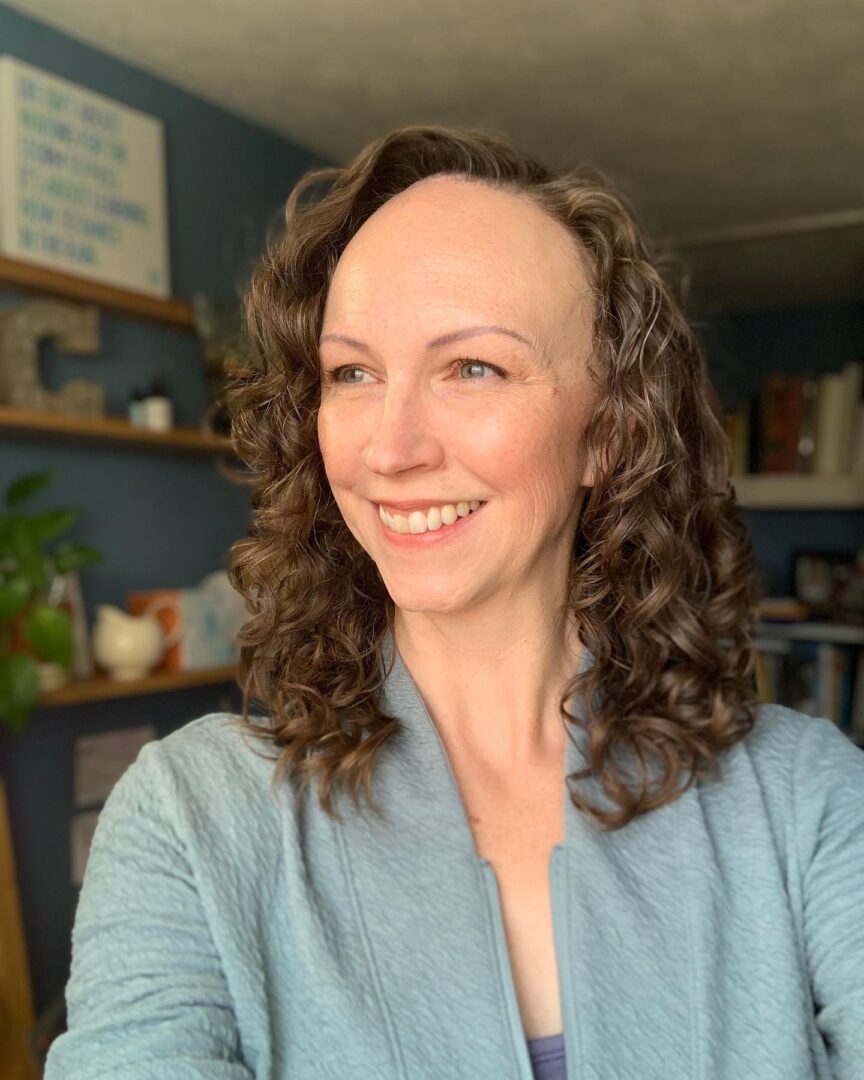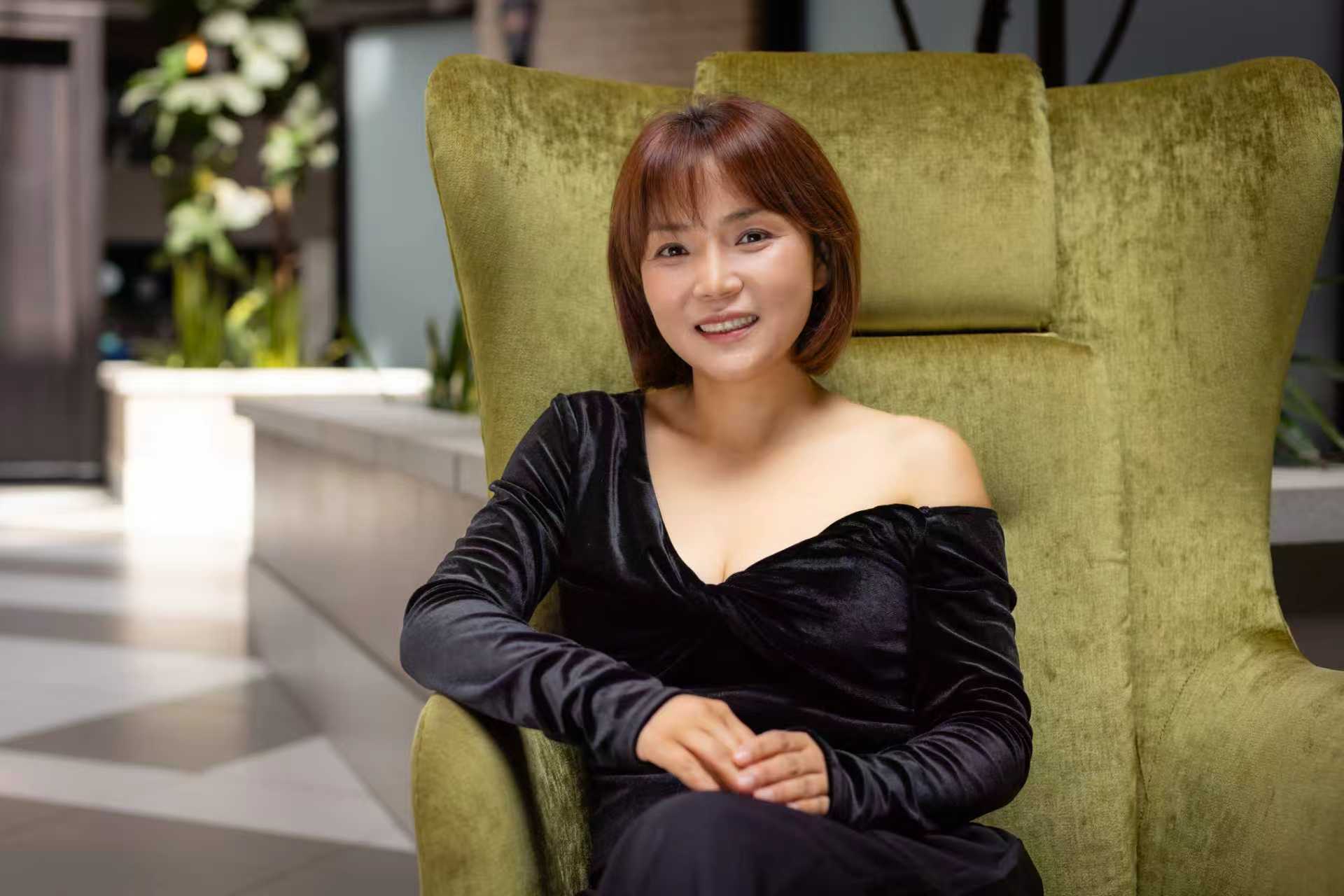We were lucky to catch up with Helen Marie Carruthers recently and have shared our conversation below.
Helen Marie , thanks so much for taking the time to share your insights and lessons with us today. We’re particularly interested in hearing about how you became such a resilient person. Where do you get your resilience from?
My resilience has developed out of necessity and from my ability to shift my perspective. I had to learn to see things in a way that is helpful in moving forward, versus keeping me stuck in feeling hopeless or defeated.
Back when I was a professional dancer, I dealt with constant rejection. It was so easy to get discouraged when I didn’t get the jobs or roles I wanted so badly. Once I finally realized that continuing to show up, even though I might be rejected, was the ONLY way I would ever get to live my dreams, everything changed.
I could learn from the experience AND not make it mean something bad about me as person. It was simply the price of admission for the life I wanted. That made it so much easier to bounce back and keep going to auditions.
But I would say that what has grown my resilience the most was moving forward after infertility.
I remember a pivotal moment so vividly…
While we were in the thick of grief over not being able to have our own children, my husband and I went out to dinner one night. And of course, we were sat near a couple who had the most adorable baby.
This beautiful child couldn’t stop staring at us and was smiling at the goofy faces we were making at her.
Before experiencing infertility, we found so much joy in seeing cute babies and kids while we were out and about, but in this moment it just felt like a cruel joke.
I could feel the hot, familiar tears welling up in my eyes as I thought “it’s so unfair that now I have to feel sad every time I see a cute baby”.
And then I thought…”Is that true? Do I HAVE to feel sad when I see a baby? Or could I actually just ENJOY interacting with this tiny miracle, even if it wasn’t ours?”
After all, I loved kids! I was sad that I wasn’t getting to enjoy those precious moments of my own, but here in front of me was an opportunity to do just that.
I realized in that moment, that I did actually have some choice in how I was feeling.
By no means did that small shift in perspective take away all of my grief, but it gave me the resilience I needed to keep putting one foot in front of the other as I healed and moved forward with my life.
It was still ok if I DID feel sad, and I would give myself space to feel that, but it also gave me permission to shift out of only focusing on what I didn’t have, and also focus on what I was grateful for.
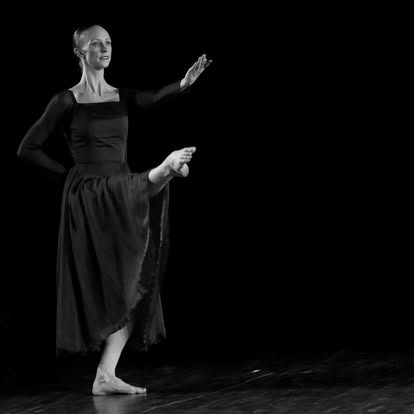
Thanks for sharing that. So, before we get any further into our conversation, can you tell our readers a bit about yourself and what you’re working on?
As a life coach, I help my clients reclaim the energy that perfectionism, people pleasing and overworking has been stealing from them, so that they can create the life they truly desire.
I teach my clients how to really tune into themselves, trust themselves, and get out of their own way.
They go from constantly living on the edge of burnout to feeling like they are winning in their work and personal lives.
It’s my greatest joy to help them realign with their purpose and brilliance in a way that feels easeful and authentic.
I use the Franklin Method to help my clients drop physical tension and create how they want to feel through the use of imagery, anatomical experience and short self care practices. It also interacts with the coaching I do because it helps you get better at noticing your body, which is an essential skill if you want to create change. The body has so much wisdom to share if you know how to listen.
Whether I am working one on one with a coaching client, teaching a workshop or a ballet class, I am known for creating a safe, nonjudgemental space where you can really explore your connection to yourself and what you want to create.
At the end of the day, the thing that makes me the most proud is that people who work with me end up liking themselves more, and stop being so hard on themselves. They get reminded of just how freaking amazing, resourceful and resilient they are. And that is everything!
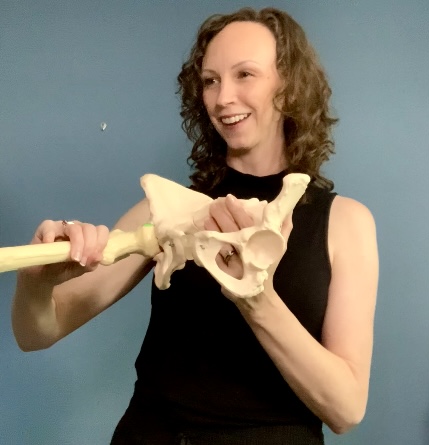
Looking back, what do you think were the three qualities, skills, or areas of knowledge that were most impactful in your journey? What advice do you have for folks who are early in their journey in terms of how they can best develop or improve on these?
Well the first one I have to mention is movement. Making movement an essential part of my life has been crucial for me to be able to process stress, connect with myself, and stay physically and mentally healthy. For me, of course dancing is one way I do that, but I also love walking, preferably in nature, and doing things like yoga, strength training and free movement.
If you are just getting started with implementing more movement into your life, I would say find something that you love to do, and don’t compare yourself to anyone else’s movement practice or think that it’s not enough/you’re not doing it right. It is your body, and YOUR movement! And just get started! When we connect to our body, we connect more deeply to our whole self. That is priceless.
The second important skill I’ve developed along the way is to learn by doing. This used to be really hard for me as a perfectionist, because I wanted to have the whole thing planned out, well thought through and polished before I ever started. I didn’t want to be seen in the trying/early phases. But, that’s impossible and would cause me to never really start or get the idea out.
Now, I let myself explore the top 3 small things I need to know before starting, then I take an ACTION. Once I do that, I can see where I need to pivot or shift if necessary. My advice here is to get out of “research mode’ and take one small step. Then you’ll know what to do next. And also, be gentle with yourself as you break those old patterns. Perfectionism is just trying to keep you safe-from feeling shame, like a failure or unworthy. Recognize that, then make the intentional choice to move forward. It’s ok to be seen trying.
Lastly, learn how to question your own perspectives and the stories you tell yourself. This is a huge part of what I do with my coaching clients because these stories, beliefs, and perspectives can sometimes stop you in your tracks, even when you want the change you are trying to create. My own stories used to keep me from going for the things I wanted, and I’m so glad to now have the skill to move through that.
You can do this by just asking yourself the question “is this 100% true? Was it true just that one time? Is that the only possibility? Is there any other way I could see this?”
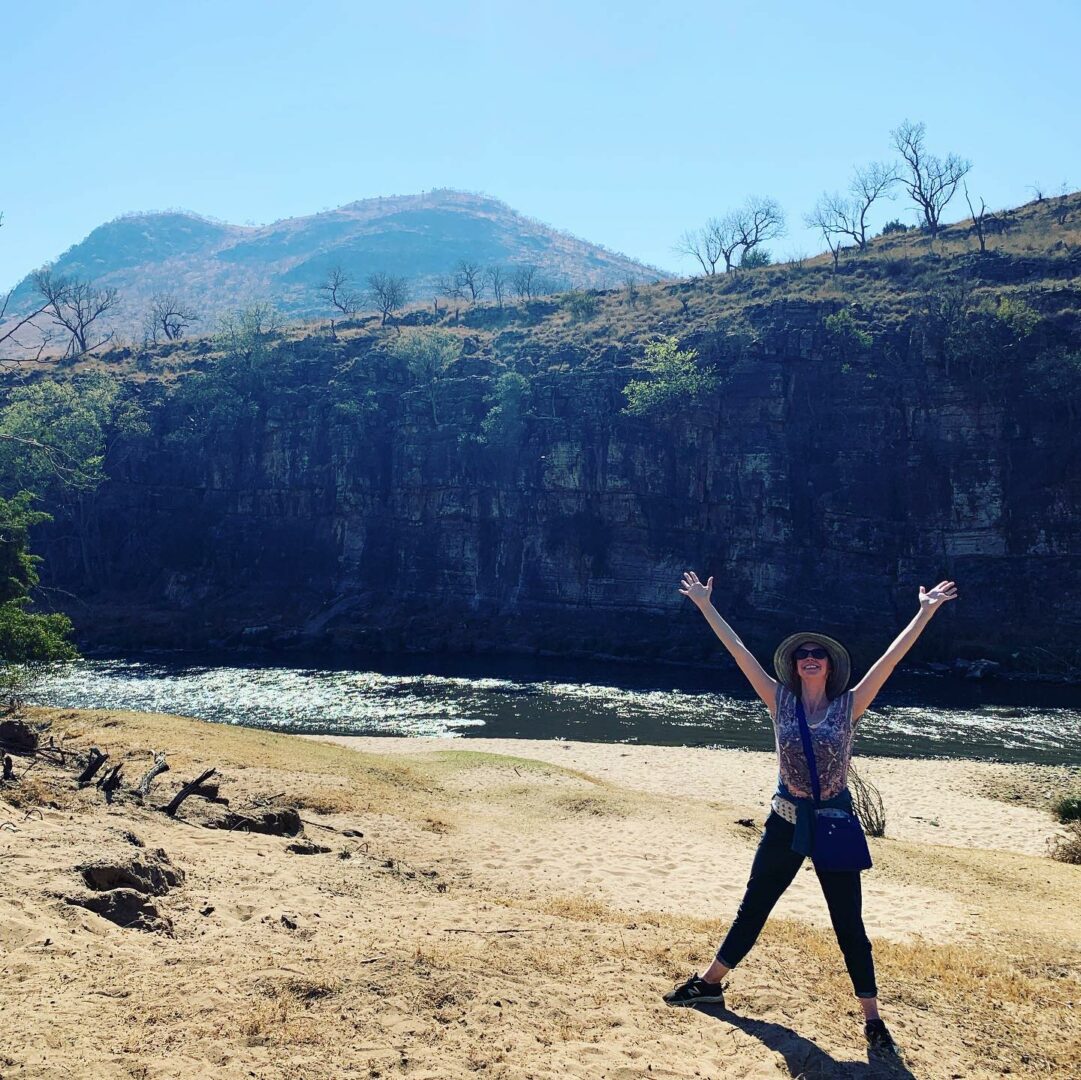
What do you do when you feel overwhelmed? Any advice or strategies?
I’ve come to realize that for me, the overwhelm kicks in when I am predicting that I won’t do a good job on the things I need to do, or when I am feeling overly responsible for the outcomes. This causes a lot of overthinking and procrastinating.
It’s not just the number of things on my plate-sometimes I can take on a lot and breeze right through it. So, really it’s when that inner voice is being self critical, telling me that I’m not doing enough, I am not enough of an expert, etc.
I deal with that by first noticing that my inner critic has gotten loud, and I let it know that I hear it. I understand it’s trying to help me by alerting me to ALL the things that need to be done, ALL the things that might go wrong, and I thank that voice for reminding me that the things on my to do list are important to me.
Then I do something to help myself feel more grounded, like take few breaths, move a little, I remind myself that I am doing enough, and I am capable of the tasks at hand.
Next, I will do a brain dump of all the things swirling in my mind, then choose one. Just by getting into motion, I can usually get out of the overwhelmed state.
Contact Info:
- Website: https://helenmariecarruthers.com/
- Instagram: https://www.instagram.com/helenmariecarruthers/
- Facebook: https://www.facebook.com/groups/869455941468901
- Linkedin: https://www.linkedin.com/in/helen-marie-carruthers-6012b748/
- Youtube: https://www.youtube.com/@helenmariecarruthers8767/shorts
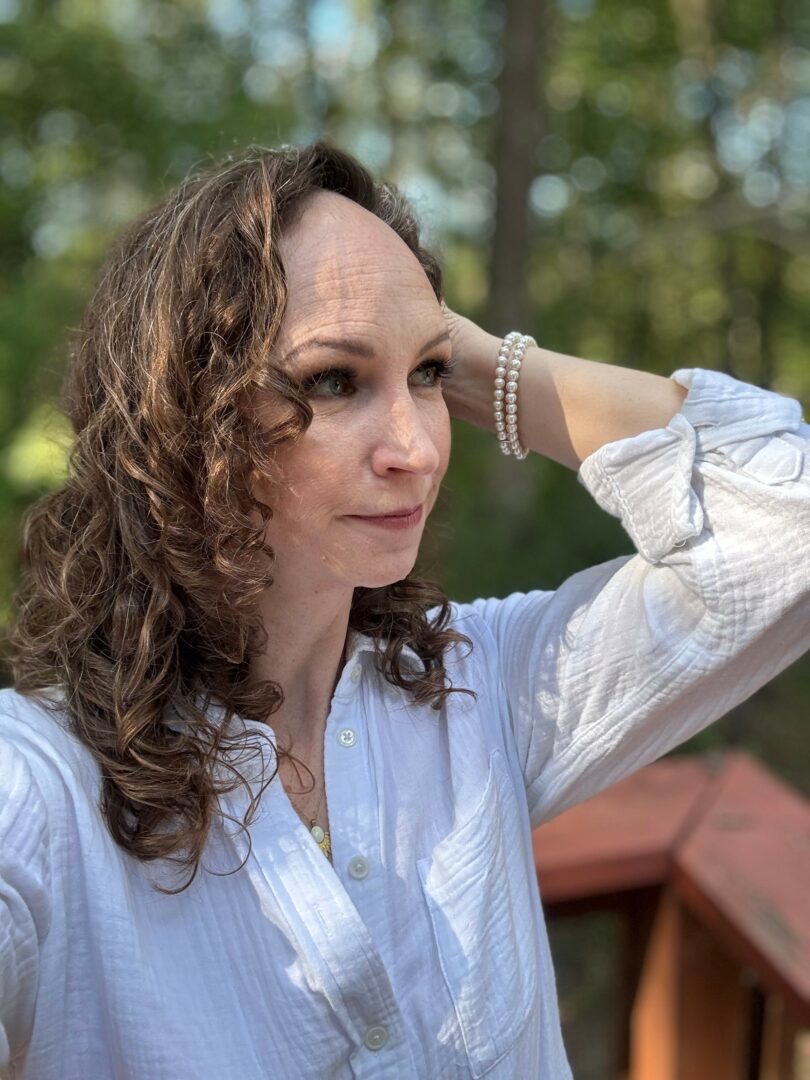
Image Credits
Simhas Photography-Jayasimha Reddy
so if you or someone you know deserves recognition please let us know here.

